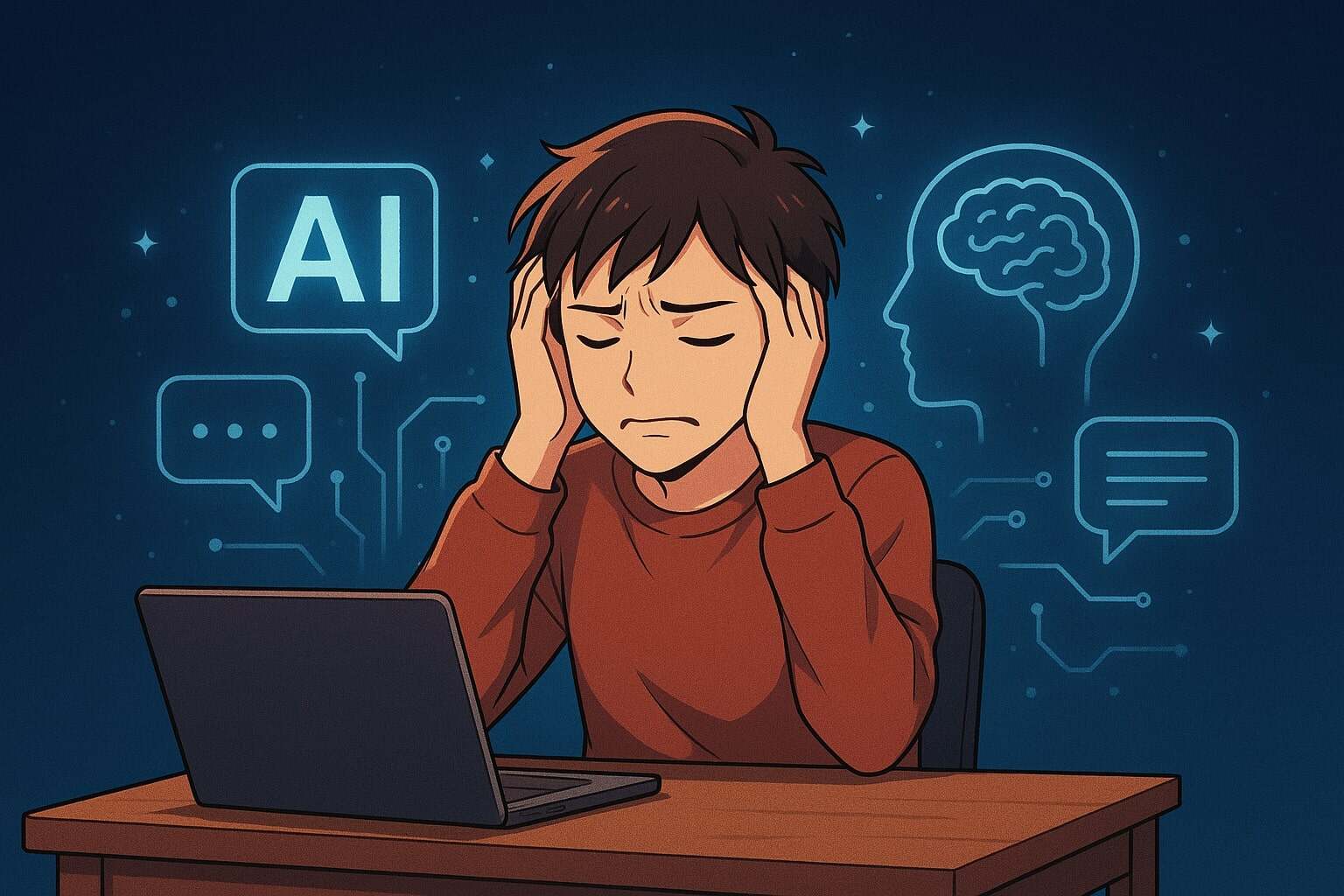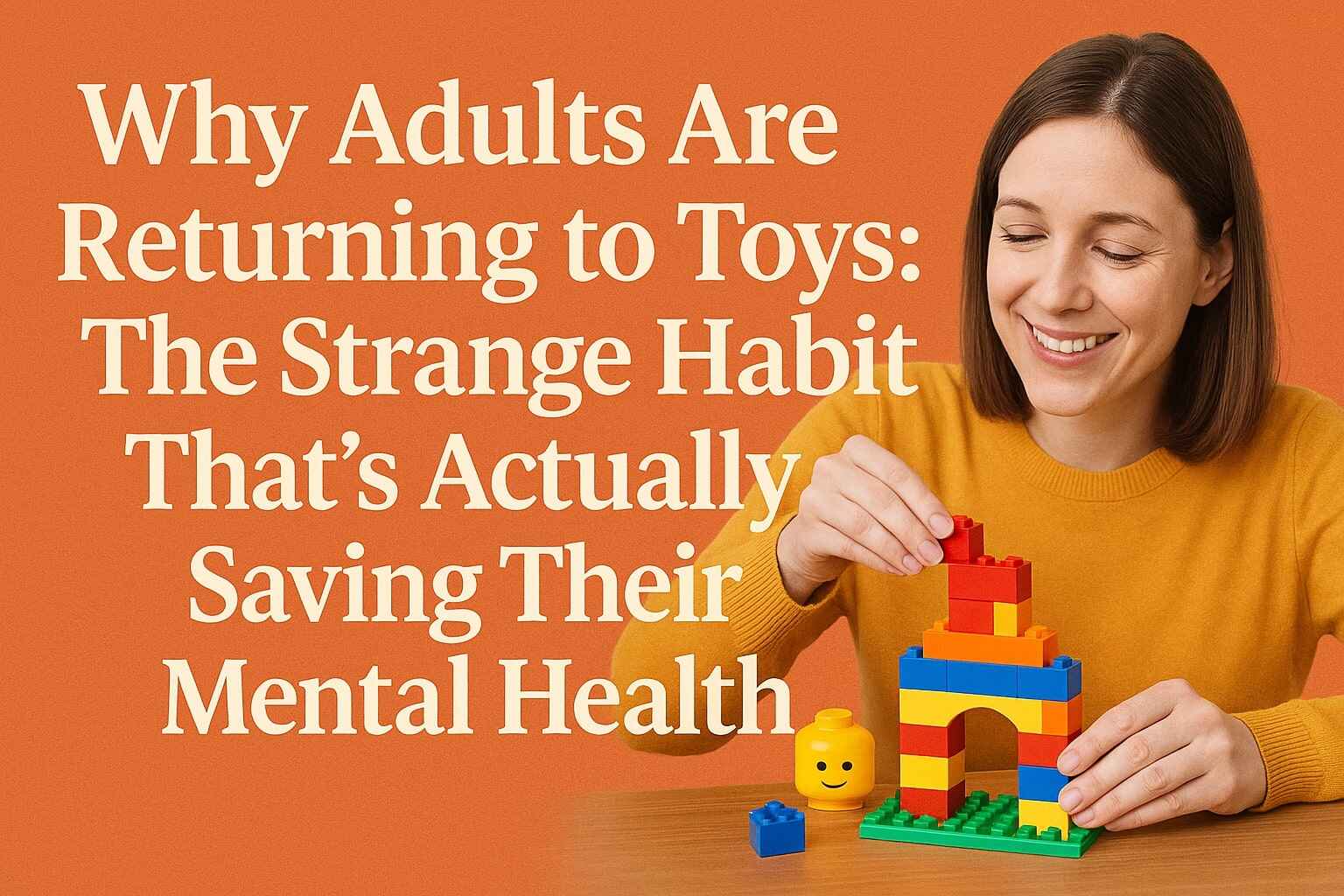It’s everywhere: headlines about the latest AI breakthroughs, constant notifications about new features, even chatbots that seem just a bit too smart. Suddenly, your brain feels overstimulated, anxious-like you’re trying to keep up with a world that’s moving faster than you can breathe.
What you’re experiencing is real-and it’s being coined AI anxiety: that sense of nervous overwhelm brought on by the rapid pace of technological change.
This blog will help you understand why it happens and, more importantly, how to reclaim your calm amid the AI storm.
1. Why AI Often Sparks Anxiety
AI isn’t just cool-it’s everywhere. From photo filters to chatbot assistants, the pace of new tools can trigger FOMO, imposter syndrome, and the fear of being left behind.
Meanwhile, your brain is bombarded by:
-
Expectations to learn or adapt quickly
-
Overload from algorithmic choices and options
-
Anxiety about digital privacy and automation
Together, these create a feedback loop of overstimulation-and that’s where AI anxiety takes root.
2. Your Brain on AI: Stress Responses Activated
When faced with rapid, unpredictable change, your brain’s amygdala fires off alarms-even when there’s no immediate threat.
This means:
-
Increased cortisol and mental hypervigilance
-
Cognitive overload from learning new interfaces
-
Feelings of inadequacy or disconnection
Thankfully, neuroscience also gives us tools to reset the system when overwhelm strikes.
"Technology is a useful servant but a dangerous master."
— Christian Lous Lange
3. How to Ground Yourself Amid AI Overload
Here’s your toolkit to manage-and overcome-the stress that AI brings:
Mindful Digital Pause
Set a 10-15 minute break to step away from screens. Breathe deeply, notice surroundings, and let your nervous system reset.
Tech Curator, Not Victim
Unfollow accounts that fuel FOMO or anxiety. Limit yourself to 1-2 trusted sources for tech updates-quality over quantity.
Resist the Hustle Impulse
You don’t always need to be learning the next trendy AI prompt or plugin. Give yourself permission to rest.
Learn With Community
Instead of solo deep dives, join a digital-support circle or forum. Learning with peers eases anxiety and builds connection.
Reground Through Physical Rituals
Move your body, breathe deeply, journal or brew tea-anything that brings you back into your body and the present moment.
4. Real Quick Fixes That Help
-
Palm over eyes: soothe light overload with a gentle cover
-
20-second body scan: tune in from head to toe, noticing tension
-
Five 4-7-8 breaths: slow the heart, ease your mind
-
One sensory check: smell something calming or touch something soft
These micro-hacks signal to your brain that you’re safe-and you’re okay.
5. Reframing the Narrative: AI as Ally, Not Enemy
Shift from fearing AI to seeing it as a tool-not a threat.
Think:
-
AI can handle repetitive tasks-freeing up your creativity
-
It can spark insight-but only when you guide it
-
It’s ultimately a reflection of our collective potential, not a replacement
Take the power back. You’re the human steering the ship.
Conclusion: Calm Isn’t a Rewind button-it’s a Choice
AI will keep evolving. But that doesn’t mean you need to chase it-or let it outpace your peace.
Ground yourself, slow down, set boundaries, and remember: being human isn’t about outsmarting machines-it’s about embracing presence, empathy, and resilience.






